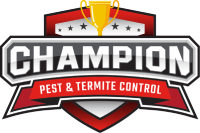FAQ about Mice
What are the signs that I have mice?
Signs that you may have mice may include:
- Sounds of scurrying or scratching in walls
- Run paths in dirt
- Holes gnawed in stored foods, piled papers and insulation
- Crumbs, food scraps, or wrappers located in out of the ordinary locations such as closets, cabinets, or corners.
- Rodent droppings
- Tiny rodent hairs
- Hair, paper, or other materials piled into a nest
- Stale, rank, or musty odors
How does a technician eliminate mice?
Mice are very curious and will investigate new things. After examining your property, the pest control technician will strategically place bait stations and/or traps in places that will entice the mice. The traps typically include sticky treats such as peanut butter which requires the mouse to work to remove it. Bait
stations will not hold mice, however the bait will attract them and they will eat it.
How do mice get inside a home?
Sometimes, mice find ways into your home by searching for food. Products such as bird seed and pet food are often prime feeding for mice. Mice also feed on nonfood items such as books paper, cloth, toilet paper, insulation, and dryer lint. Other times, environmental issues such as cold temperatures drive mice to look for warm spaces to shield from winter weather.
How do you keep mice out of your home?
Mice tend to nest in quiet, dark places such as closets, attics, and garage areas. They will only travel within 10 feet of their nest, so their nest is always near a source of food and water.
In order to keep mice out of your home, you should:
- Seal any gaps or holes in foundation around your home as well as in the siding of your house.
- Make sure there are no gaps or crevices around your doors and windows.
- Clean up clutter and take garbage out regularly.
